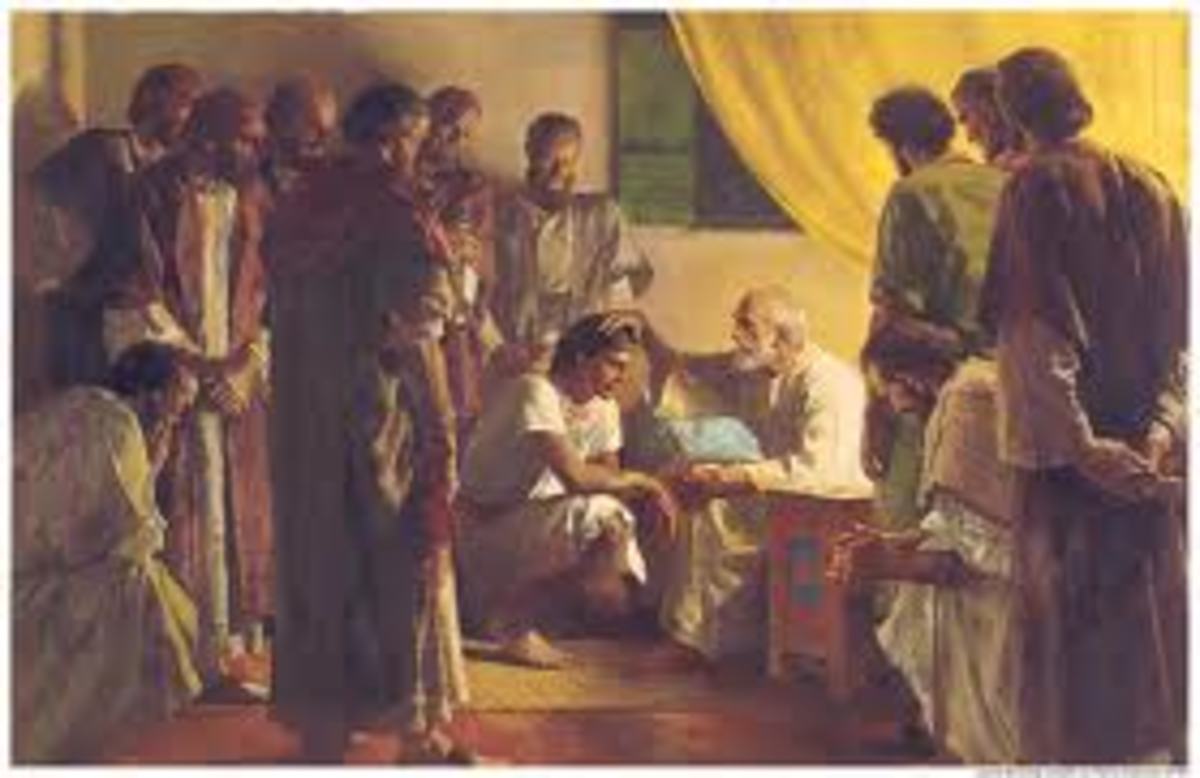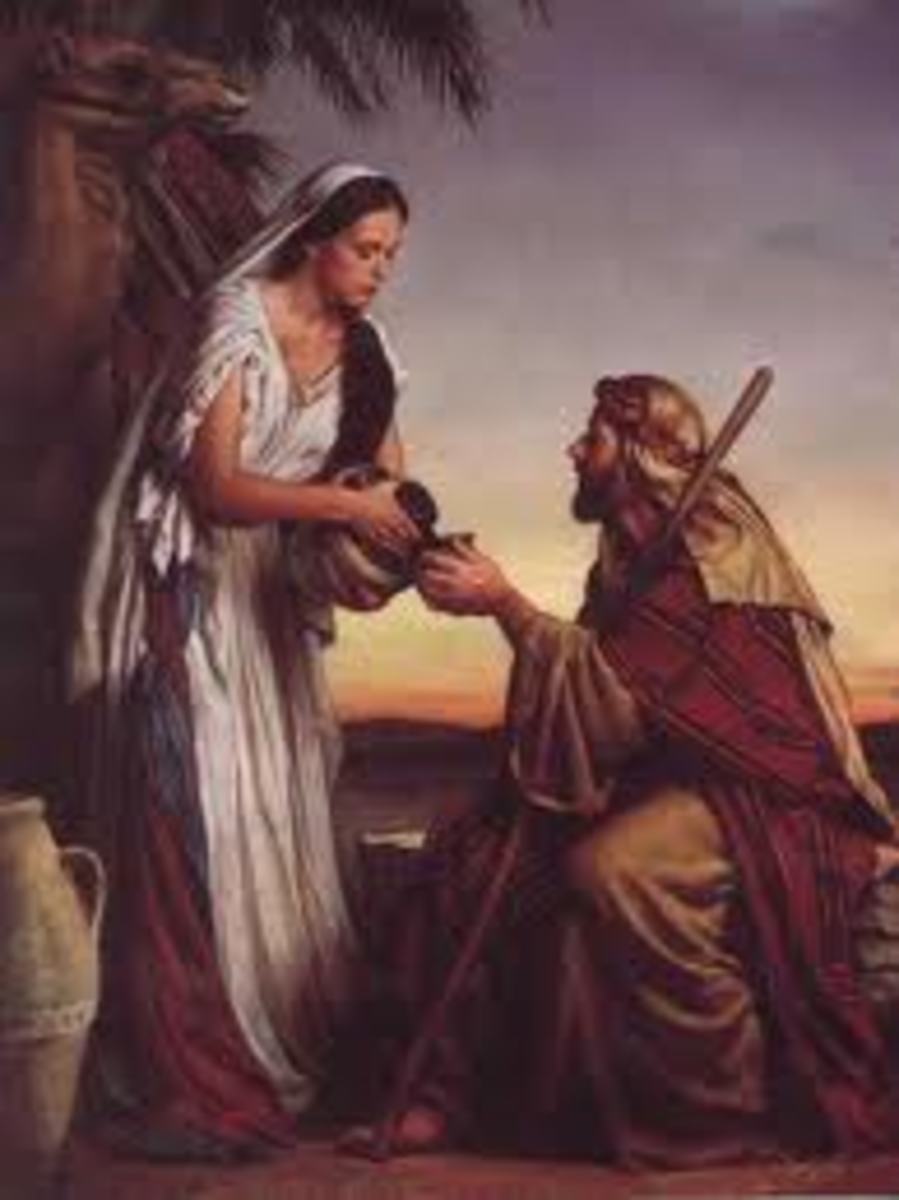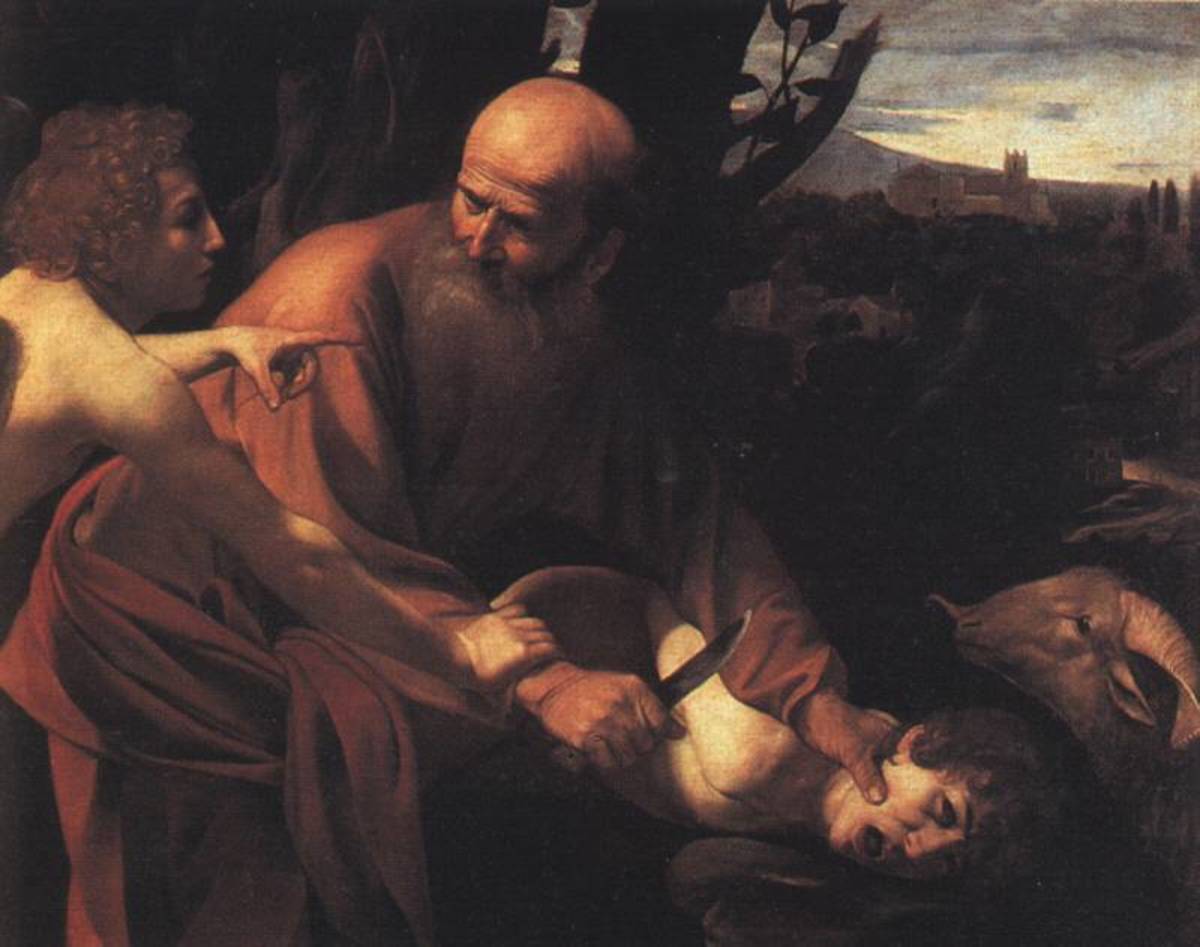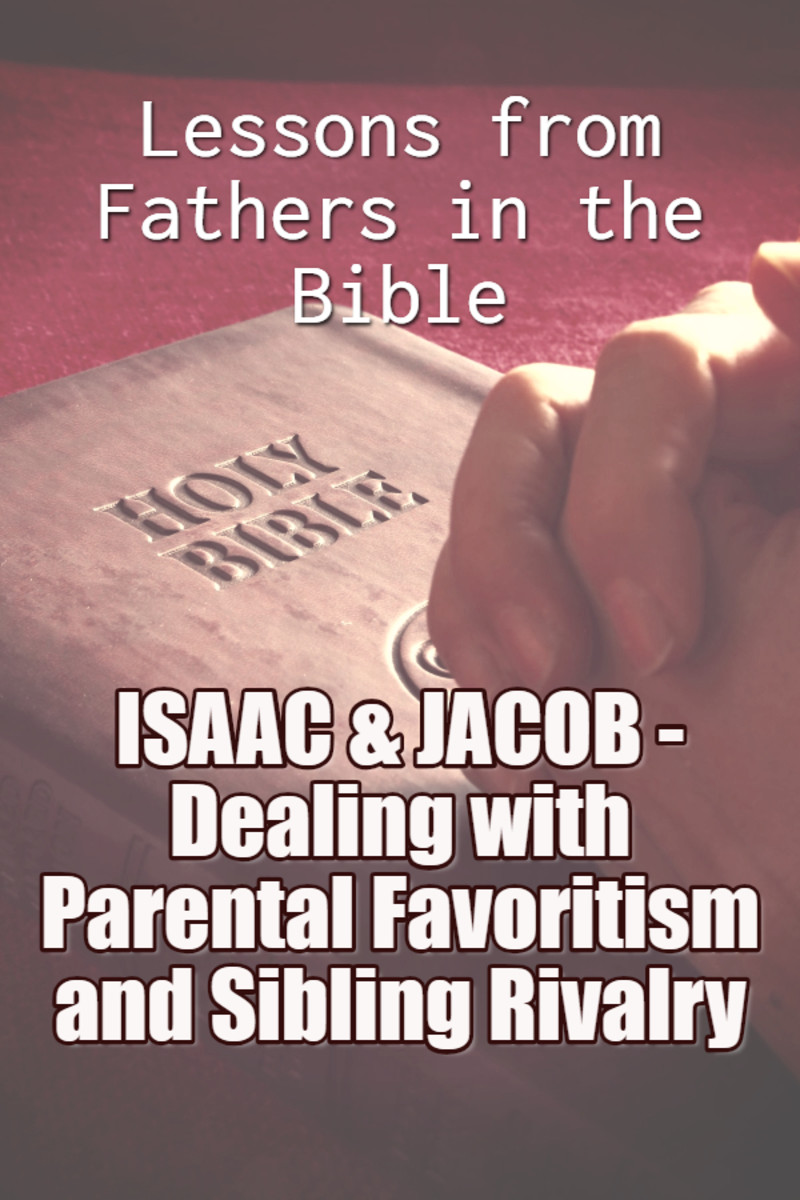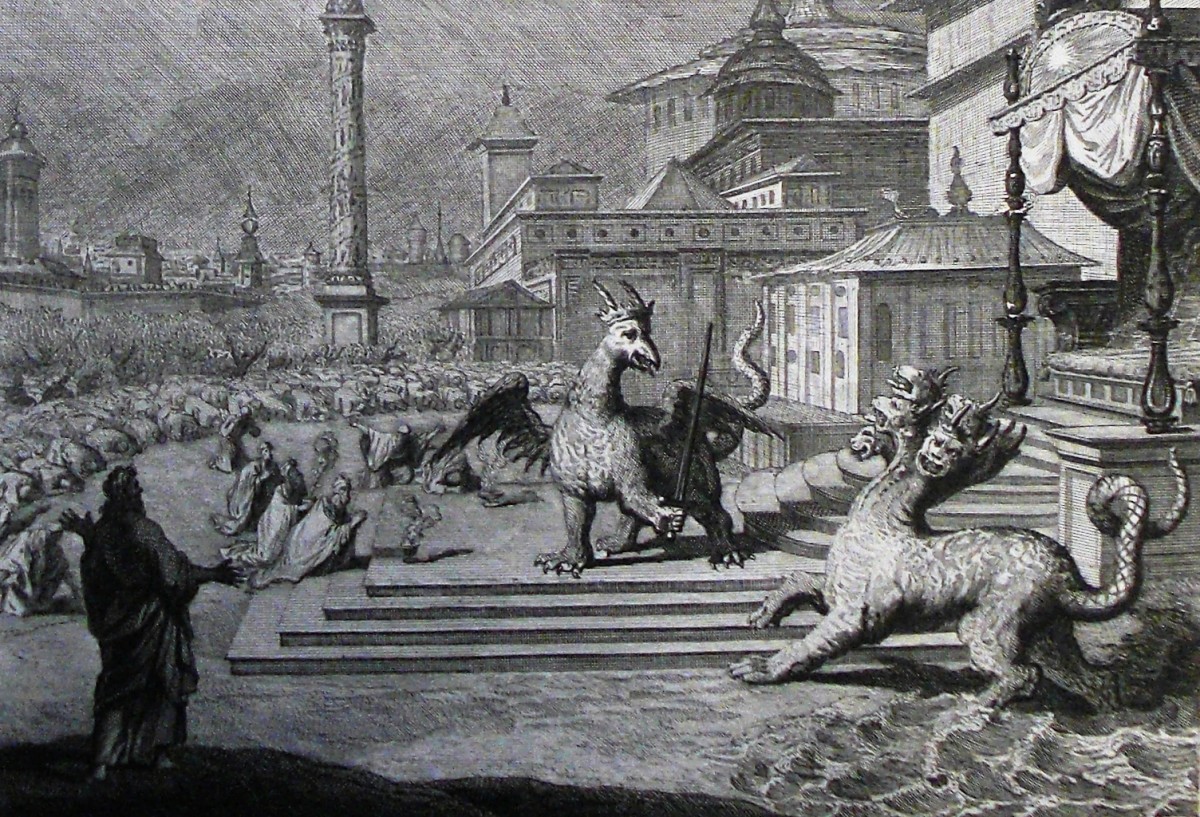Bible: What Does Genesis 30-31 Teach Us About the Sons and Wives of Jacob?
The Sons of Jacob
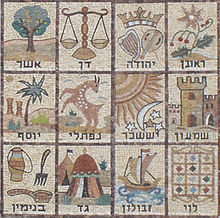
Mandrakes--Fertility Plant

The Sons and Wives of Jacob
Besides female barrenness, allowing one’s husband to beget children by a handmaiden also seems to be a family/cultural tradition in the near East.
As it was with Sarai, Abraham, and Hagar, so it is with Rebekah, Jacob, and Bilhah, Rebekah’s nurse (vv. 1-5; cf. Gen. 16:1).
Bilhah bears Jacob two sons—Dan (“Judge”) and Naphtali (“Wrestling”)—before a suddenly unfruitful Leah lends Jacob the services of her maid Zilpah who bears him Gad (“Troop or Fortune”) and Asher (“Happy”) [vv. 6-13].
The competition continues as Leah’s first-born Reuben finds mandrakes—a supposed fertility aid--and gives them to his mother whom, in turn, Rachel harangues because she wants some of them (v. 14).
Leah bargains with Rachel (who apparently had primary cohabiting privileges with Jacob at this time) so that she could now sleep with Jacob in exchange for Reuben’s mandrakes (vv. 15-16).
She again conceives and bears a fifth son, Isaachar (“Wages”), and later a sixth, Zebulun (“Dwelling”), before finally giving him Dinah (“Judgment”)—the one and only daughter (v. 21).
Finally, God answers Rachel’s prayer, and she bears Jacob a son, Joseph (“He will add”) [vv. 22-24].
[Each of these names in parentheses, of course, holds significance for the mothers, as the text indicates.
Leah saw her first three boys as ways to gain Jacob’s affection, while her fourth was not; Judah was simply a cause to praise God (possibly because he was in the line of Messiah) (vv. 32-35).
She understood Isaachar as payment for her generosity with the mandrakes (v. 18); Zebulun seems to be another inducement for Jacob to live with her (v. 20).
Even though they were not her children, Rachel considered Dan’s birth as a divine ruling of sorts that she was not cursed (v. 6), and Napthali’s as an acknowledgment of Leah’s stiff competition for Jacob’s affections (v. 8).
Her only real son to this point, Joseph, pointed to her hope for more sons (v. 24)].
Jacob's Creativity
After Joseph’s birth, Jacob wishes to return to his hometown with his wives and children; Laban, however, wants him to stay because he has prospered greatly with Jacob in his employ (vv. 25-27).
Uncle Laban even offers his blessed nephew an opportunity to name his own wages (v. 28)!
In response, Jacob first reminds his uncle how his coming has made Laban wealthy, and then reveals that he no longer desired to work for him (vv. 29-31).
What he proposes is to choose a certain portion of Laban’s flock and leave; Jacob even arranges it so that his uncle can charge him with theft if he finds other types of animals in his possession (vv. 32-33).
To this arrangement, Laban heartily agrees (v. 34).
Laban, not Jacob, chooses the flock, gives them to Jacob’s sons (v. 35), and then he moves away from them.
Meanwhile, Jacob feeds the rest of Laban’s animals (v. 36).
He tends these flocks in such a way that he gains stronger animals; meanwhile, the weaker ones remain with his uncle (vv. 37-43).
[How Jacob arranged their mating and used the peeled rods to gain an advantage over Laban is a study in creative animal husbandry].
True or False Claim
view quiz statisticsJacob Departs From Laban
Genesis 31
When Laban learns from his sons about Jacob’s manipulations of the flock, he is obviously not pleased with him; Jacob also realizes that relations had cooled toward his uncle (vv. 1-2).
To prevent any violent confrontation that might ensue, the LORD commands Jacob to go “home” (“the land of your fathers and to your family”) with his family (v. 3).
Calling his wives to him, Jacob explains why they must all leave Laban and return to Canaan (vv. 4 ff).
He seeks to justify this decision by telling them that God has protected him from Laban’s machinations and has finally provided for all their needs (vv. 5-9).
He also claims that the LORD had recently showed him in a dream how to acquire Laban’s best animals (vv. 10-13).
[This dream appears authentic; he had it before manipulating the flock (chapter 30).
Jacob is not fabricating a story just to convince his wives that he has divine guidance to leave Laban].
Because Rachel and Leah realize that Laban had both consumed their inheritance and lost all their wealth to Jacob, they quite readily follow their husband’s lead (vv. 14-16).
Stealing away without notifying his uncle, Jacob takes everything he owns and heads toward the mountains of Gilead, unaware that Rachel had also pilfered her father’s household idols (vv. 17-21, 32).
Pilfered Articles
view quiz statisticsThe Covenant Between Jacob and Laban
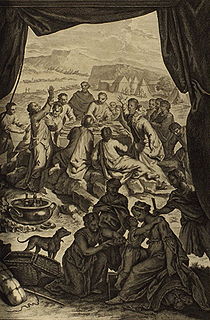
When Laban learns of their departure, he pursues and finally overtakes them after a week’s journey (vv. 22-23, 25).
[Jacob had a three-day head start.]
Having been divinely warned to “speak to Jacob neither good nor bad (v. 24),” Laban serves up some seemingly legitimate questions to his son-in-law (vv. 26-30).
[Whether or not Laban would have given them a going-away party is a moot point].
Jacob’s reason for leaving quickly and without giving advance warning is also legitimate; he appropriately handles the theft of Laban's idols (vv. 31-32).
Though he searches every tent, Laban cannot find his gods with Rachel; the woman had secreted them away in a camel’s saddle and had sat upon it (vv. 33-35).
[She undoubtedly fabricated the reason why she could not “rise” from where she sat.]
Feeling justified in vigorously objecting to his uncle’s imposition, Jacob vents twenty years’ worth of frustration, once again reviewing for Laban how he had faithfully and sacrificially served him, despite the latter’s unfairness, and how the LORD has finally rebuked him for his ill-treatment (vv. 36-42).
Laban still considers everything that Jacob had taken, especially his daughters and grandchildren, as his property, but he acquiesces not to pursue the matter any farther (v. 43).
Heaping stones together as a witness to their actions, they covenant with each other (one in Aramaic and the other in Hebrew) [vv. 44-48], stipulating that neither would pass beyond that designated border to do harm to the other (vv. 49-53).
[Laban is concerned that Jacob take no other wives for himself (v. 50)].
After staying overnight on the mountain, Laban departs the next morning (vv. 54-55).
© 2013 glynch1

